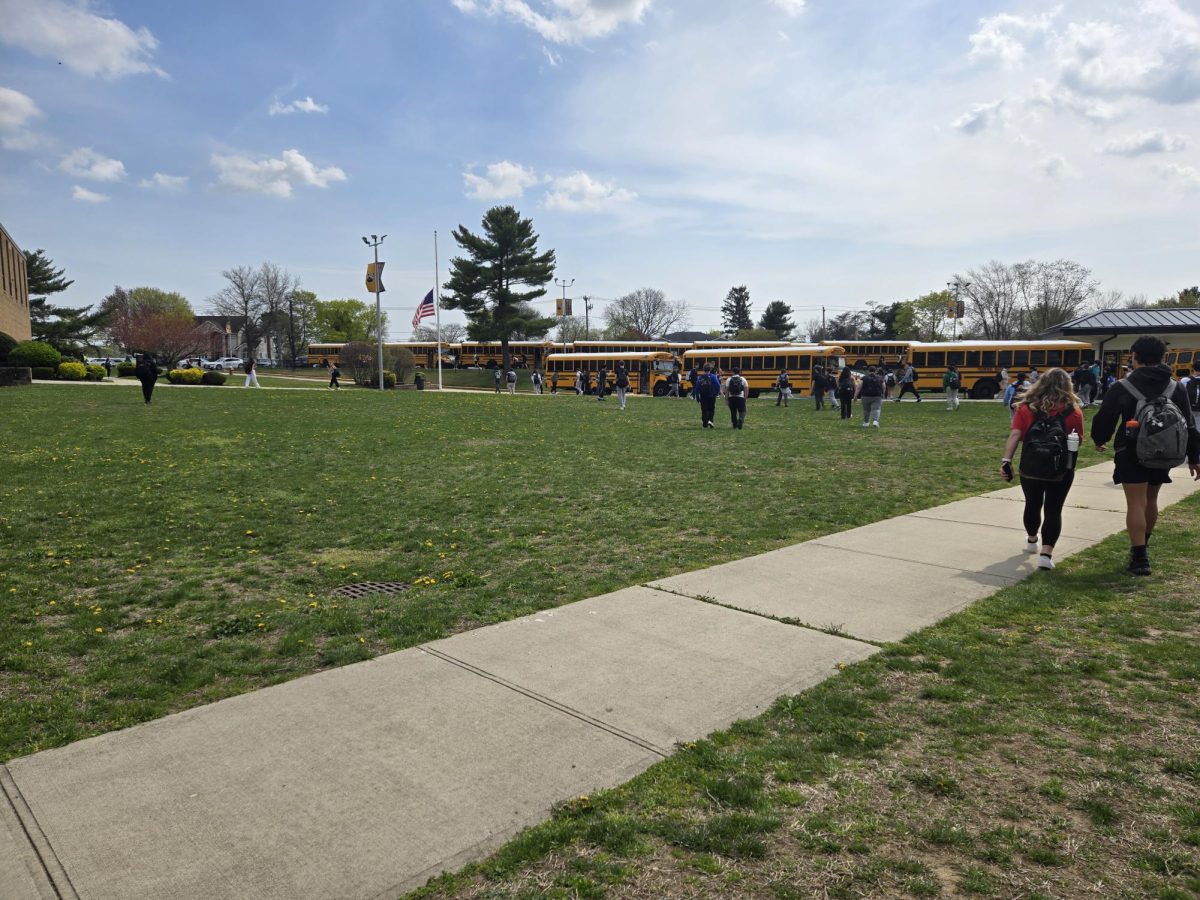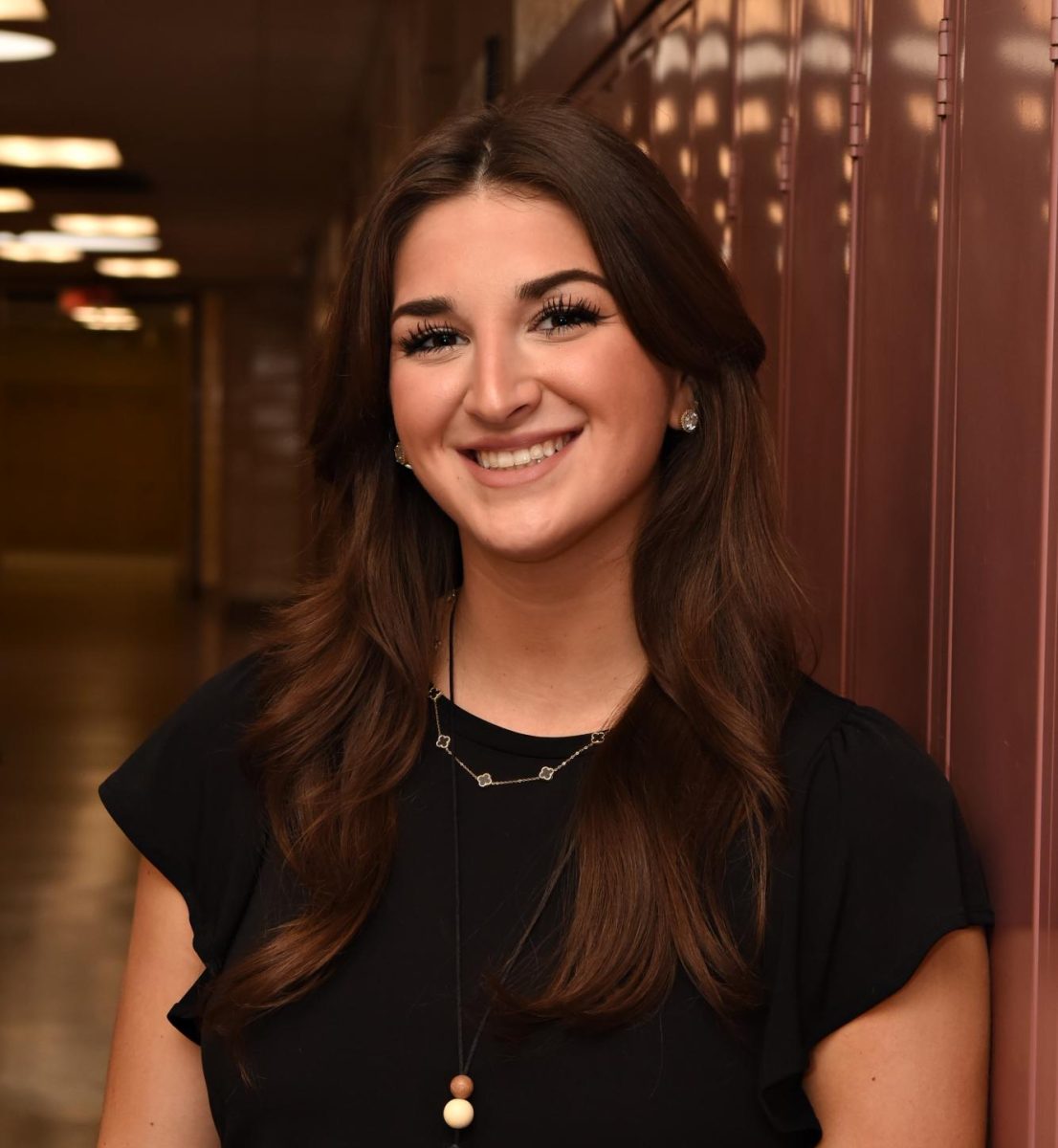Around 7:40 a.m. everyday students sit at their desks groggily preparing themselves for the long day ahead, yet by ninth period they are awake and learning.
Whether one is an early bird or night owl, there is some kind of routine to wake up and get to school. Throughout the school day, as more students participate, they become “awake” in class. One’s energy changes the presence in class, whether it’s negative or positive.
Some students use energy drinks or have coffee to wake themselves up although there are healthier options for getting the job done.
“Hydrating and drinking lots of water or having a good breakfast like some protein, I still feel like that’s the healthiest way to help your body wake up,” said school psychologist Dr. Heather Leggio.
First period teachers try to engage students in the morning and give them the same learning experience as later classes.
“I get it and you just woke up more or less thirty-five minutes ago and you kind of roll out of bed you’re into here. I understand that component but, I usually have to either do something more on my end to try to get them more engaged whether it be like to encourage that extra bit of participation or sometimes depending on the day I have to call or do something with them being participatory,” said history teacher Sean Prahalis.
On the other hand, some students feel unfocused in the morning and believe there is a clear difference between learning in the afternoon and learning in the morning.
“When I wake up I’m really tired and sleepy and I cannot concentrate during Math. […] I feel like students in the afternoon are more energetic and could be able to do math better than first period math people,” said Sijia who has Algebra 1 first period.
Students can feel tossed into school when their day starts with a subject that is challenging and frustrating for them. Math is a subject that requires full attention and thinking which may be challenging in the morning. First period teachers and students have to work together to accomplish tasks even if everyone is not awake.
“[The teacher] definitely tries to make the class be […] more energetic and [have students] participate. [Many times] no one raises their hand except for maybe two kids,” said Alessandra who also starts her day with math.
Prahalis compares students later in the day versus in the morning using a metaphor.
“My ninth period is the dog already wiled up, my first period is the dog waking up from a nap, it’s very much a difference,” said Prahalis.
Naturally, throughout the day, students become more awake and focused leaving them to question why high school starts so early.
“My honest opinion is that parents need to go to work and typically […] if I can’t leave for work with a young one still at home […] I need to make sure that they are getting to school safe and sound. [Also] part of it’s also on the other side you get out at 2:30 you get out at 3:00 still plenty of time for sports in the day,” said Prahalis.
Since school starts the time it does students are able to participate in more activities and though they start their day early, this schedule helps students to have more free time.
“We do so many after school activities and sports and things like that so it kind of allows for us to have that time without going too late into the day,” said Leggio.
Dr. Leggio also greets students from outside the Counseling Center while they are walking in during the morning. Leggio shared that they are able to tell the mood of the day by the mood of the students.
“On different days it’s different, it’s kind of funny because I feel like I can tell the vibe of the day from the building by just being out there and greeting students because sometimes the vibe is very happy and like collectively the student body is alert and awake and responding,” said Leggio.
Prahalis and Leggio agreed that the way periods are arranged affect student participation. Students such as Sijia and Alessandra both start their day with math and said that their class was possibly too tired to participate.
“I think there’s a good amount of students who having a core class first period is challenging for them, like having math first period could be a little bit challenging because again if you just woke up your brain might not be fully awake […] but maybe it’s okay to start school [at 7:30] but maybe we start with art or music,” said Dr. Leggio
Prahalis mentioned that starting school with a calmer class would help ease students into the day as well.
“The kids had mentioned that the ideal schedule and they often start with art, music, or gym being first period would be their ideal way to ease into the day,” said Prahalis.
The idea of a “breakfast” period at the beginning of the day could be an ideal solution.
“I’m also aware that […] starting with history or starting with physics first period is a little bit tough, but maybe it could be like a more open aspect, like a fifteen minute homeroom or breakfast type of thing. […] you get to hang out a little bit, talk and liven up and then you go into your first period, but that’s a pipe dream, as opposed to a logical process,” said Prahalis.
On the side of the students Alessandra had the idea of a kind of student lounge which could be a relaxing space for her peers.
“So, instead of not having recess and having a longer lunch, we get to have half lunch and then half like nap time or there’s a place that we can go to just rest,” said Alessandra.
Younger students start their day later than high schoolers despite the fact they are more energetic at the hour high school begins.
“Kindergarteners wake up at the time that we wake up and then they go to school at that time cause also parents have like a 9 to 5 do they match with their schedules and I think it would be better if their school started earlier and our school started later because we have more hw and we have student athletes so I feel like we need more time to rest,” said Alessandra.
Dr. Leggio also agreed that as a mother, her kids would wake up around the time that most students do; but not have school until around two or three hours later. Mr. Prahalis on the other hand believes that if school started later than students wouldn’t go to bed at the same time the night before but would stay up later leaving them just as tired as they would have been. Overall, if school was to begin later, they believed that a few more students would show up.◼️









